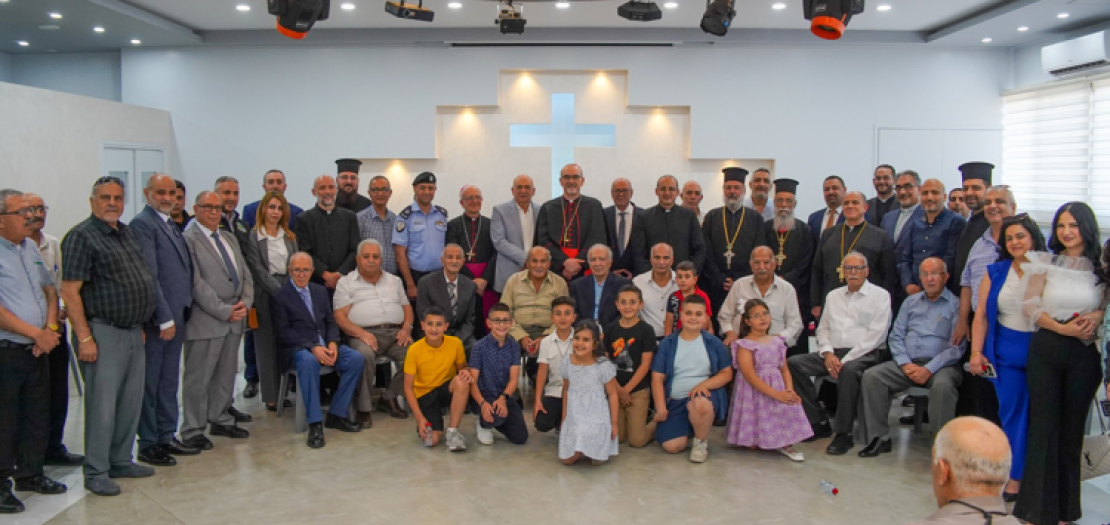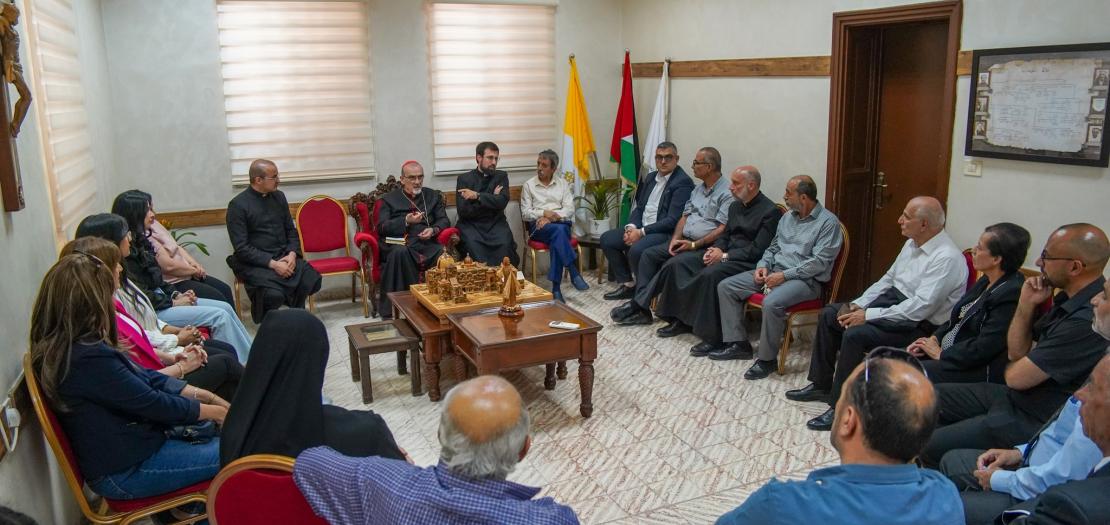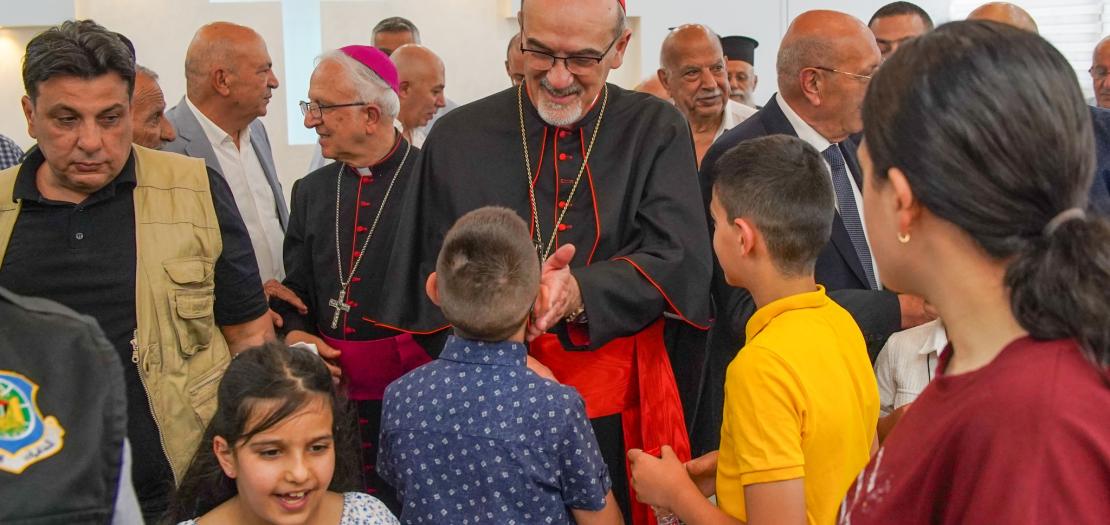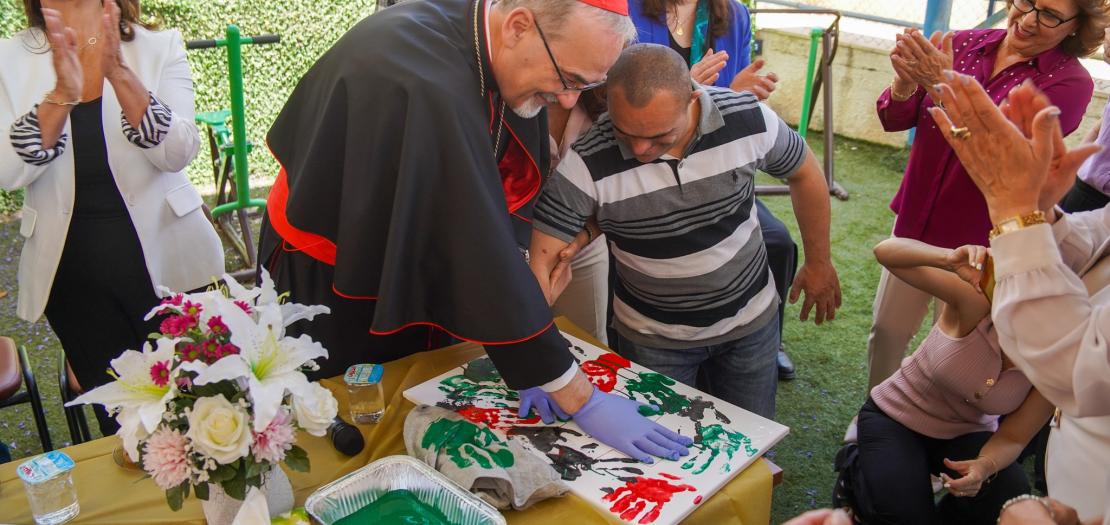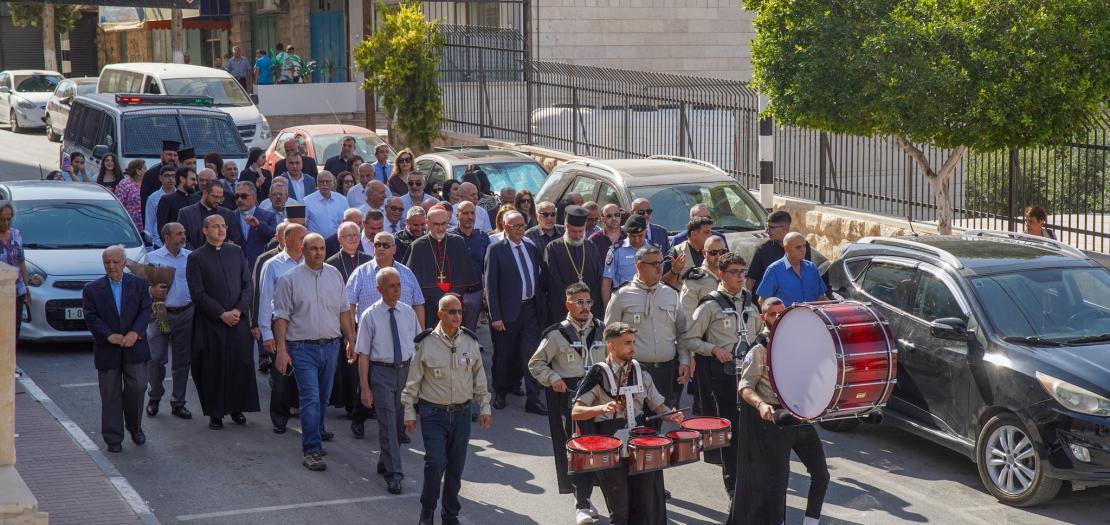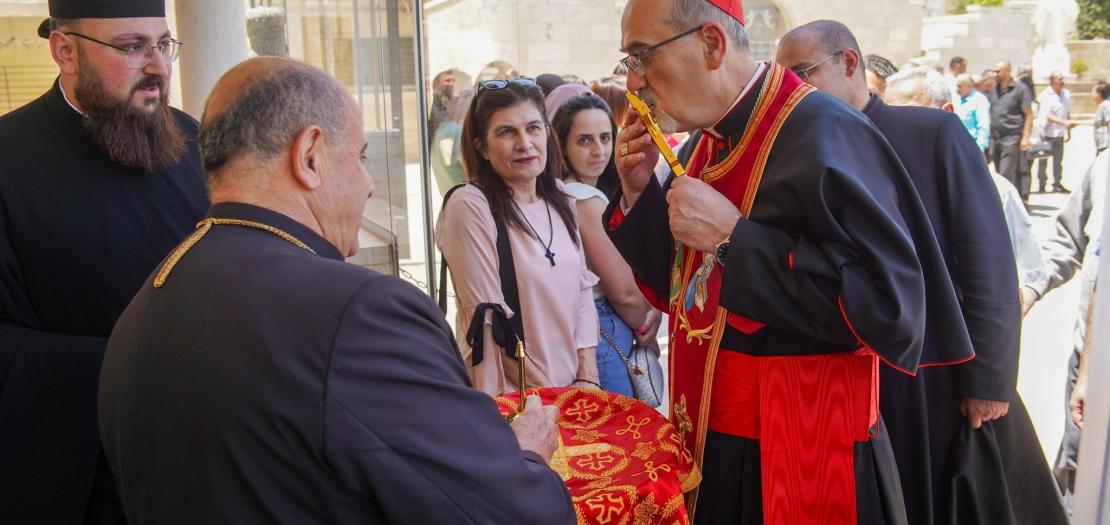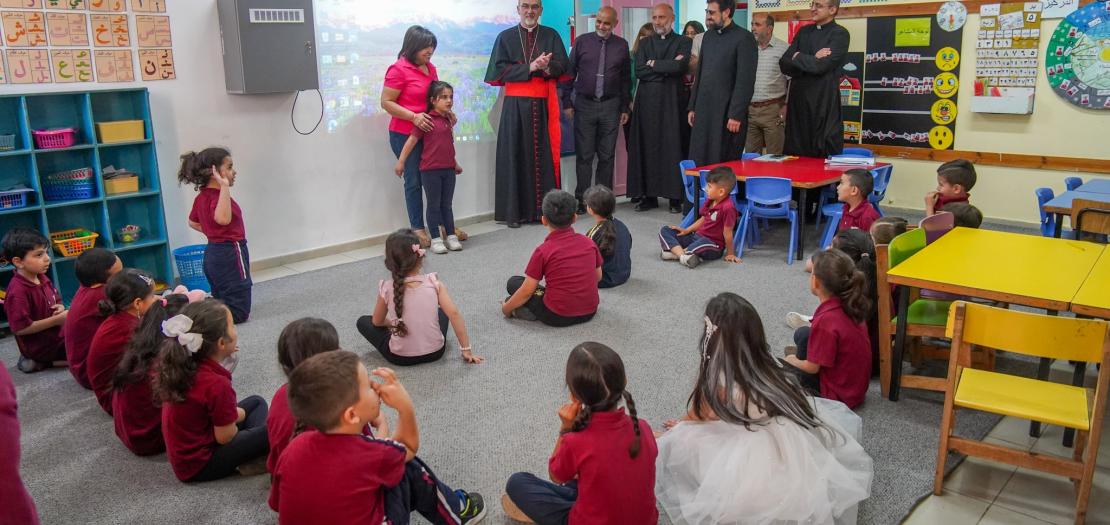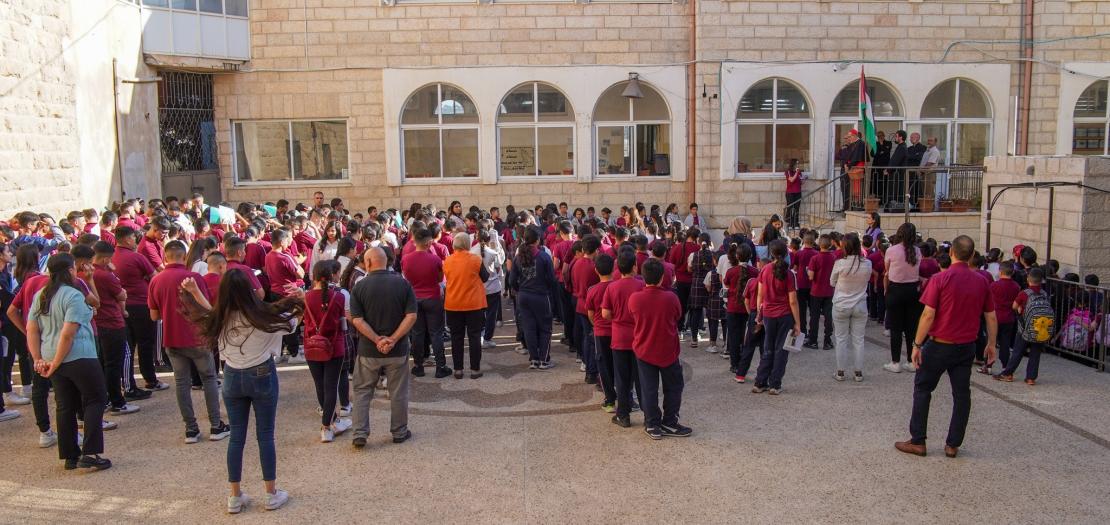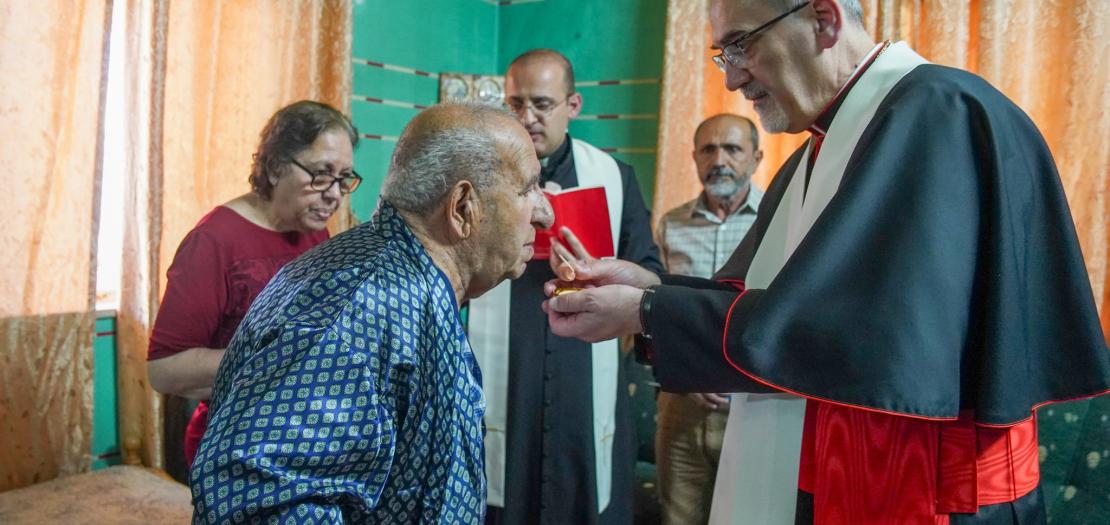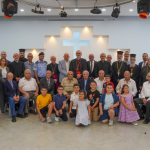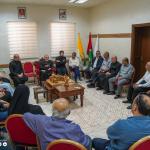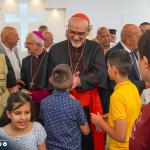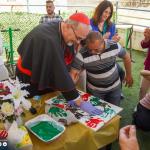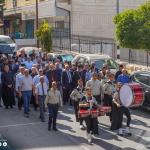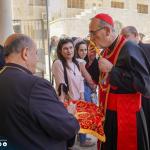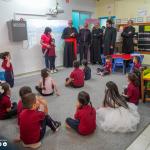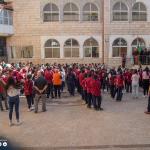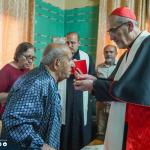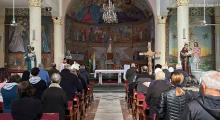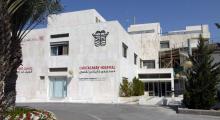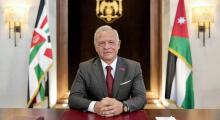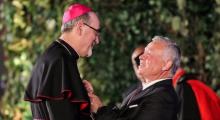Issued by the Catholic Center for Studies and Media - Jordan. Editor-in-chief Fr. Rif'at Bader - موقع أبونا abouna.org
From May 22 to May 25, 2025, His Beatitude Cardinal Pierbattista Pizzaballa, Latin Patriarch of Jerusalem, resumed his pastoral ministry in the Diocese of Jerusalem following his return from the Vatican with a deeply meaningful visit to the town of Beit Sahour. Over four days, the Cardinal engaged in a rich tapestry of pastoral encounters, community visits, and ecumenical gatherings. He listened attentively to the hopes and struggles of the faithful, reaffirming the Church’s steadfast commitment to walking with its people—especially in times of hardship.
Following are the main highlights of the visit:
Day One: A Welcome Rooted in Communion
The visit began with a vibrant and heartfelt reception at the entrance of Beit Sahour, where the Latin Parish Scouts formed a joyful line of welcome. The event was graced by the presence of Msgr. William Shomali, General Vicar; Fr. Issa Hijazin, parish priest of Beit Sahour; Fr. Emmanuel, vicar priest; clergy from local churches; and civic figures, including Minister of Tourism Mr. Hani Hayek, Mayor Mr. Elias Issa Eid, and representatives from official institutions.
Municipal leaders described the visit as a blessing for Beit Sahour—an affirmation of the enduring bond between the local community and its spiritual shepherd. In a time marked by social and political uncertainty, the Cardinal’s presence was seen as a powerful sign of hope, reminding all that the Church continues to be a voice for peace and human dignity in the Holy Land.
In his remarks, Cardinal Pizzaballa expressed joy at returning to Beit Sahour, noting that although he had visited before, this extended stay allows for a deeper engagement with the parish. “As a Patriarchate,” he said, “our mission is to listen and to serve. We cannot truly love God without listening to the needs of His people.”
The day concluded with the graduation ceremony of the 21st class of the Latin Patriarchate School—celebrated as the “Jubilee Class”—where the Cardinal commended teachers and families for their dedication to the students’ formation.
Day Two: Bridges of Dialogue and Service
The second day unfolded with site visits starting at the municipal headquarters, where the Cardinal was briefed on upcoming development projects focused on youth empowerment, housing initiatives, and employment. He praised the efforts made to serve the diverse needs of the local community and called for renewed efforts to revive pilgrimage and tourism to the Holy Land. Visits were made to the Palestinian Heritage Trail association and the Holy Child School. In a gesture of honor, the municipality awarded the Cardinal the Beit Sahour Medal of Distinction.
Ecumenical encounters played a key role in the day’s itinerary, including visits to the Orthodox Church of the Ancestors and the Lutheran Evangelical Church, where prayers were lifted for Gaza and for peace across the world. At the Melkite Catholic Church of the Shepherds, a heartfelt welcome emphasized the symbolic weight of the Cardinal’s presence as a voice of truth. During a stop at the parish school, he reminded educators that their work is more than a profession—it is a mission rooted in love, saying: “Students will remember the teacher who loved them. Love is the foundation of all education.”
The day also included visits to the Korean religious house and local charitable institutions.
He concluded the evening by meeting with the pastoral groups of the parish, and presiding over a Mass, before visiting the local Orthodox cultural and sports center, where he explored its various community spaces.
Day Three: Embracing the Margins
The third day highlighted the Church’s commitment to education and social inclusion. The Cardinal participated in the morning assembly at the Latin Patriarchate school, visited the kindergarten, and then toured a specialized school for children with learning difficulties, where students performed touching artistic presentations.
He then met with staff and youth at a senior citizens’ club, a charity for young adults with intellectual disabilities, a mental wellness center, and a women’s union. Another meaningful stop was at a local community development center, where he learned about their mission and wide-ranging programs.
The afternoon featured meetings with the teaching staff of the Patriarchate school and with the Beit Sahour Council of Churches.
He administered the Sacrament of the Anointing of the Sick to several parishioners, reinforcing the Church’s pastoral closeness to those in suffering. He also visited environmental and peace-focused organizations before arriving at a prominent local Islamic charity.
There, the reception was warm and deeply symbolic. In a moving speech, the organization’s leadership expressed pride in hosting the Cardinal, describing his visit as a historic expression of interfaith solidarity. They extended gratitude to the Vatican and the Catholic Church for their consistent humanitarian outreach, particularly in vulnerable communities.
The day concluded with an evening of hymns and spiritual reflection in the garden of St. Marie Alphonsine Parish.
Day Four: A Celebration of Faith and Witness
The pastoral visit concluded with a solemn Mass at Our Lady of Fatima Church. During the liturgy, Cardinal Pizzaballa honored Mr. Shafiq Shomali for decades of service to the Scout movement and the parish community, presenting him with the Patriarchal Medal. He also congratulated couples marking their golden and silver wedding anniversaries.
In his homily, the Cardinal reflected on the Gospel theme of “remaining in Christ.” He emphasized that faith is not a matter of appearances or tradition, but a deep, living relationship with God. “Faith,” he said, “is not a garment we wear on Sunday and take off afterward—it is the very foundation of our daily life.”
He noted that the preservation of Christian identity had emerged as a central theme throughout his visit, with many grassroots efforts in place to nurture this identity at both the local and national levels. Yet, he stressed, these efforts must be grounded in authentic faith. “I invite you,” he said, “to deepen your relationship with God by building your lives on His Word, and allowing yourselves to be shaped by His peace.”
He concluded with heartfelt gratitude: “I have found great consolation in the love, faith, and unity I witnessed in this parish. This visit has confirmed for me that the Church is indeed alive in this blessed city.”


